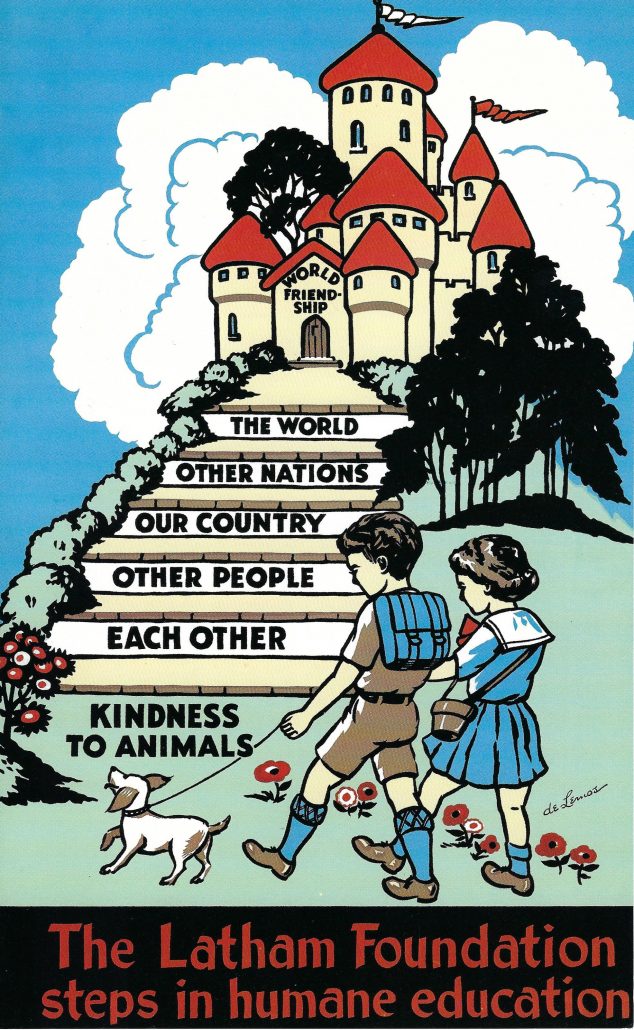What is Humane Education
A 2023 Update –
In its broadest sense, humane education is often defined as “the use of education to nurture compassion and respect for living things” or “a process that encourages an understanding of the need for compassion and respect for people, animals, and the environment and recognizes the interdependence of all living things.”
To Latham, humane education is working to help others by showing respect, compassion, and empathy toward animals, others, and all endeavors.
The Latham humane education model is classically documented in the Latham Steps seen here. This hierarchy of actions, all based on the cornerstone of being kind toward animals, is how Latham views humane education.

Note that we follow the hierarchy of the Latham Steps in applying humane education to a wide variety of activities. Once we learn to show respect toward animals, we use those values and apply them to a wider variety of situations. In our own work, we find cooperating with other organizations and groups toward common goals that improve our community is a good and valid application of humane education. You can find examples of real world humane education in our Latham video library that may help you gain a better sense of what Latham considers humane education.
As Latham’s purpose is to promote humane education, we need to clearly define our view of humane education—what it is, and what it is not.
In our view, humane education is not;
Animal legal rights – Some argue that animals should have the same, or similar, legal standing in court as human beings—that they should be able to sue and pursue legal actions just as a human being does. Latham Foundation does not support that view.
Dietary restrictions – There are some who state that you cannot be humane if you eat meat. Latham is sympathetic to the view of being the best possible person, and having a balanced, healthy diet, but it does not agree that eating meat limits a person’s humaneness in any way. A person who may fish, or hunt, or raise farm animals is as qualified to teach and practice humane education as someone who chooses not to include meat in their own diet. Different communities and family practices guide what we do. Those standards should not be inconsistent with teaching humane education.
Environmental issues – Starting in about the late 1950s, a movement resurfaced suggesting there was a limited environment on earth, such that mankind was facing the increasing likelihood of extinction if current programs of human growth continued without control. While climate change is very real, as is the importance of being good stewards of the lands we live on, we do live in a dynamic world environment. Humane education certainly supports teaching respect for the environment, but it does not go as far as to join those who believe that mankind is killing the earth or that larger government is the answer.
Social Justice – Social justice is a political concept holding fair and just relations between an individual and society. It is measured by the explicit terms of a distribution of wealth, opportunities, and social privilege. Social justice teachings are outside the role of humane education, but people who teach humane education, by their other associations (church, social groups or personal views) may pursue social justice related activities in their society. In the United States, Latham Foundation strongly supports the US Constitution and Bill of Rights, and from that, the rule of law and responsibility for each person to be self-reliant with minimum government assistance. Supporting the rule of law is consistent with humane education; ignoring the laws and proclaiming social justice is not.
Humane education remains the teaching of personal responsibility, not a community or collective obligation.
Hugh H. Tebault, III
June, 2018

